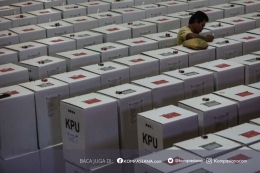Spain, with its olive groves and vineyards, has adopted agroforestry, which combines trees with crops to reduce soil erosion, enhance biodiversity, and optimize water use. This approach has been particularly beneficial in maintaining soil health and fostering a connection between farmers, the land, and the community.
In North America, agricultural innovation is evident through practices like vertical farming, which conserves space and water, and regenerative farming, which focuses on soil restoration while growing crops. Techniques such as cover cropping, crop rotation, composting, and the use of animal manures are part of this regenerative approach.
Burkina Faso, despite being a West African nation with numerous challenges, has seen remarkable examples of farmers turning adversity into opportunity through integrated natural resource management. This has led to the rehabilitation of degraded lands, restoration of ecosystem services, and increased crop productivity.
These examples demonstrate that sustainable farming is not a one-size-fits-all solution but rather a set of practices that can be adapted to local conditions. The success of these methods lies in their ability to improve soil health, increase biodiversity, and ensure long-term productivity while also addressing the pressing issues of climate change and environmental degradation. The global community's interest in these practices has led to collaborative efforts to scale up and share knowledge, furthering the reach and impact of sustainable agriculture. By learning from these successful examples, regions like Singkil can tailor sustainable practices to their unique circumstances, fostering a more resilient and prosperous agricultural future.
Singkil can embark on a journey of collaboration with regions that have successfully implemented sustainable farming practices by establishing partnerships and exchange programs. These collaborations can take various forms, such as joint research initiatives, farmer exchange visits, and participation in international agricultural conferences. By engaging with these successful regions, Singkil can gain insights into effective sustainable farming techniques and strategies that are adaptable to its local context.
One of the first steps Singkil can take is to identify regions that have similar geographical and climatic conditions and have shown success in sustainable agriculture. This can be done through research and reaching out to international agricultural bodies. Once these regions are identified, Singkil can initiate contact to explore potential collaboration opportunities. This could involve inviting experts from these regions to conduct workshops and training sessions for local farmers and agricultural officials in Singkil. Such hands-on training can provide practical knowledge and skills that are directly applicable to the local environment.
Furthermore, Singkil can establish formal agreements with successful regions to facilitate knowledge sharing and technology transfer. These agreements can outline the scope of collaboration, such as sharing best practices, providing access to new seed varieties, and introducing innovative farming equipment and techniques. Through these partnerships, Singkil can also gain access to new markets for its agricultural products, which can be an incentive for farmers to adopt sustainable practices.
Another effective approach is for Singkil to participate in international sustainable agriculture networks. These networks often consist of members from various regions who regularly share their experiences and challenges. By being part of such networks, Singkil can stay updated on the latest developments in sustainable farming and apply relevant practices to its own agricultural sector.
Singkil can also benefit from participating in case study analyses and meta-analyses of successful collaborative efforts in sustainable agriculture. These studies can provide valuable insights into the factors that contribute to the success of such collaborations, including the importance of defining clear priorities and the role of internal factors within collaborative groups.
Additionally, Singkil can look into existing collaborations within its own region, such as the Smallholder Hub established with General Mills, which focuses on creating a deforestation-free and exploitation-free supply chain. Learning from the experiences of such local initiatives can provide a solid foundation for expanding collaboration efforts to international partners.
Moreover, Singkil can leverage technology to facilitate collaboration. Virtual platforms can be used for webinars, online training sessions, and forums where farmers and experts can interact and exchange ideas. This can be particularly useful for overcoming geographical barriers and enabling continuous learning and support.







